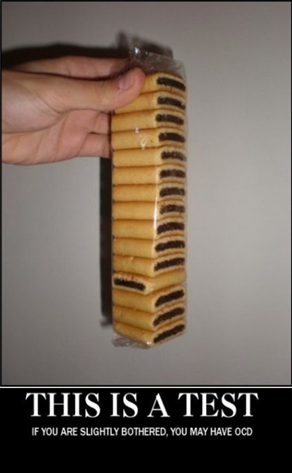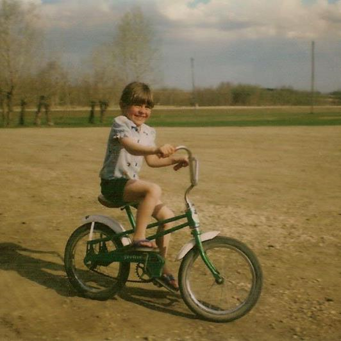12 Sep OCD: It May Not Be Quite What You Think
I was diagnosed with OCD at the tender age of 41 – about 27 years after I first started to notice my OCD-like behaviors and about 41 years after I learned that OCD was far more than wanting things to be a certain way or being bothered by imperfections.
As a teenager, I would do things that were not “normal.” Things that could easily be identified as “OCD behavior”:
- Rewriting school notes as many times as it took to do it.
- Writing each subject in their designated color without using whiteout.
- Never changing the sizing of letters or pen weight or spacing.
- Etc.
It was exhausting, exhilarating, oddly beneficial, (I never had to study because I’d written everything out so many times it was locked in my brain through the process) and most of all it was compulsive.
This was the time of my life where the “C” was living in its prime, it was absolutely in control of me.
The Compulsion Part of OCD
I lived my life with this “C” (compulsion) day in and day out for years upon years. It was helpful at times.
It actually made me look like I had everything together.
My house was spotless. Everything was organized. Not one thing was visibly out of place. (What was going on inside my head was another story.)
It energized me at the same time that it exhausted me. The drive for organization, order, cleanliness, and perfection made it so I’d always find the time to get it done.
But that same “drive” (compulsion), would also not let me rest nor allow me to enjoy the calm and order I created around me.
It was never enough, never good enough, never perfect.
I use the term “was” as if this is all in the past. It isn’t but it is different now than it used to be. I have my kids and my husband to “thank” for that.
Honestly though, eventually, I just couldn’t keep up. The house became ours rather than mine and no amount of compulsion will keep this beast organized and cleaned to my “C” standards. So I gave up in a way, but it still lives in me.
It likes to rear its ugly head usually when my hormones are raging or I’m under extra work pressure or I had a terrible sleep – all things that happen far too often.
The “C” (compulsion) aspect of OCD is different in all people. But for me, it is a dire need for order, cleanliness, tidiness, and perfect balance.
I can’t win at it anymore.
My school notes were a lot easier to control than a house full of people.
Work is another thing. The compulsion is alive and well there but that’s another story for another day.
The compulsion side of OCD is one that most of us identify with most easily. It is the basis for many a meme and many hands raised when asked to identify as a person with OCD.
It Isn’t a Quirk. It Is an Illness
We have all seen comments like “this triggers my OCD” when presented with a photo of a floor tile out of place or a cake cut unevenly. We frequently encounter images like this:


The reality is, this would bother almost every single person on the planet.
Humans like order. We like things to be as expected. Even when we want chaos (as in art), we want it to be presented in a certain way.
This out-of-place cookie is not an OCD test. If it is, then I’d say it’s likely that OCD is not, in fact, a disorder at all but rather a natural human trait.
OCD is not a fun little quirk to be proud of. It is a very debilitating disorder that takes incredible strength and energy to live with.
I think it is great that we all can share a bond over our quirks and be able to laugh at the desire for order that we all share but there is potential for harm in doing so.
I am not certain that throwing terms like OCD around so casually is a good idea.
For me, a person that struggles with it, it actually devalues my struggle. It highlights for me the misunderstanding that exists in regards to what OCD really is.
I can’t make it stop. I can’t walk away from it.
I can’t just say “this triggers my OCD,” laugh, and carry on.
I will ruminate on that (whatever it is), until I either eventually work through it or enough time passes that I get distracted by something else and I am forced to let it go.
Which leads me to…
The Obsession Part of OCD
The “O” is what led to my diagnosis. I’m sure the “C” would have too had I ever talked to anyone about it. I didn’t.
I think I felt it was silly and seemed overdramatic and in all honesty, I thought I should be able to control it. I thought it was my fault. I didn’t understand.
Actually, let me rephrase that.
The “O” is what caused my complete breakdown, which led to my husband researching, which led to him finding an article which led to me talking to my therapist, which led to my diagnosis.
Thank God!
I had experienced a major trauma years ago. I was working through it with my therapist. I was working hard. I was doing all the right things. (Though in all honesty, it had been a long time coming, I should have reached out sooner.)
I couldn’t shake it. I couldn’t move on. I couldn’t be “normal.” I wasn’t functioning.
I would go to bed thinking about it and wake up thinking about it.
Everything on TV was a reminder. Everything I read I could draw a comparison.
It was everywhere. There was no escape. (There still isn’t but it’s getting better.) I was obsessing.
Now obsessing over a traumatic event is totally normal too, much like wanting the cookies to be lined up right.
BUT what isn’t “normal” is never, ever, ever being able to think about anything else no matter what. It ruled my life.
My obsessions were more than a compulsion. They were my brain, my heart, my breath, my life.
Every single day, I’d wake up hoping somehow I’d have a breakthrough moment – a switch would flip and I would forget (or at least forget to remember for 10 seconds). But it just couldn’t happen.
In an attempt to save my family from myself, I began to try to pretend to not obsess. I’d say I was doing much better.
I was hoping the idea would wear off on me. It did help a bit because I was forced to grin and bear it so I did find moments where my obsession would give up cause it knew it wasn’t winning my attention in this moment of this day. But that takes so much work, it isn’t sustainable.
I won’t go into the work I have done thus far that is working for me to help get through this. That would be a whole article in itself.
I will say though that with the help of awareness and a great therapist and a supportive partner, I am doing a lot better. I have hope.
The Disorder Part of OCD
So what about the “D” (disorder)?
Well, that part is easy. It is a “disorder.” Plain and simple.
That means it is “an abnormal physical or mental condition.”
It isn’t the usual. It isn’t the normal way of living. It isn’t how it should be.
It is, however, how it is for me.
In looking back on my life with the viewpoint I now have, one with an understanding of OCD and it’s complexities, I can see this has been a lifelong struggle for me.
I have the urge to jump back in time to a little 5-year-old me and give myself a hug and tell that little girl it’s OK.
I am sad for her. I wish she knew that she didn’t need to worry so much and that her brain was quite frankly being a bit of a bully.
I can’t go back.


But I can go forward.


Living with OCD
Having a diagnosis of OCD has changed my life. It has given me that hope.
In my cognitive behavioral therapy class, we have a saying:
“If you can name it, you can tame it.”
And I strongly believe that to be true. I know I will never live without OCD, but in knowing that I have OCD I can learn to live with it.
I hope that in some way my story has helped at least one person to maybe either realize they aren’t alone or maybe realize that OCD is different than maybe what they once thought it was.
Knowledge is key. It changed my life.
(Shout out to my husband and business partner, Dave Davies for his mad researching skills that got me to this place. He’s not just good at SEO folks!)
More Resources:
- Be the Positivity You Wish to See in the World
- Mental Illness – No Shame – Lots of Hope
- What I’ve Learned from 10 Years with Clinical Depression & Anxiety
Image Credits
In-Post Image #1: ME.ME
In-Post Images #2-3: Provided by author
Sorry, the comment form is closed at this time.